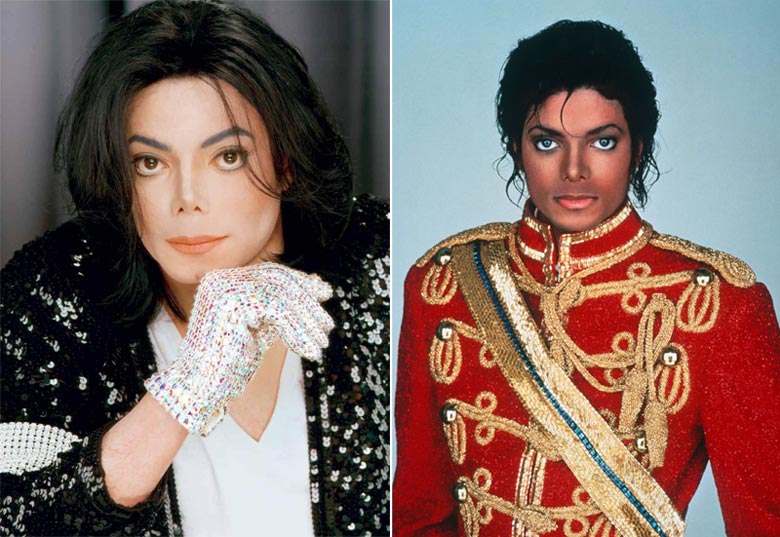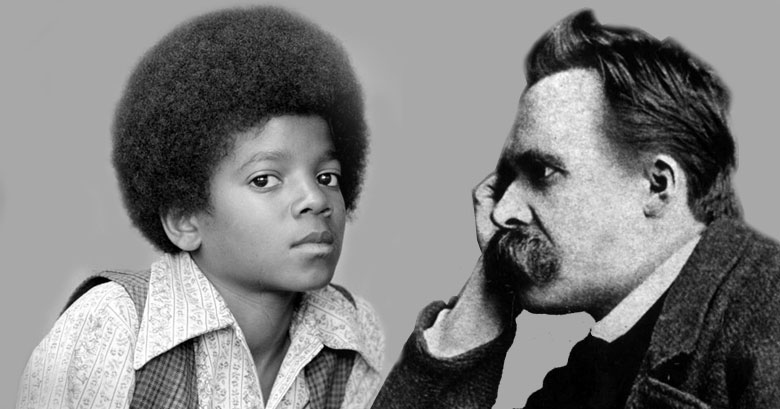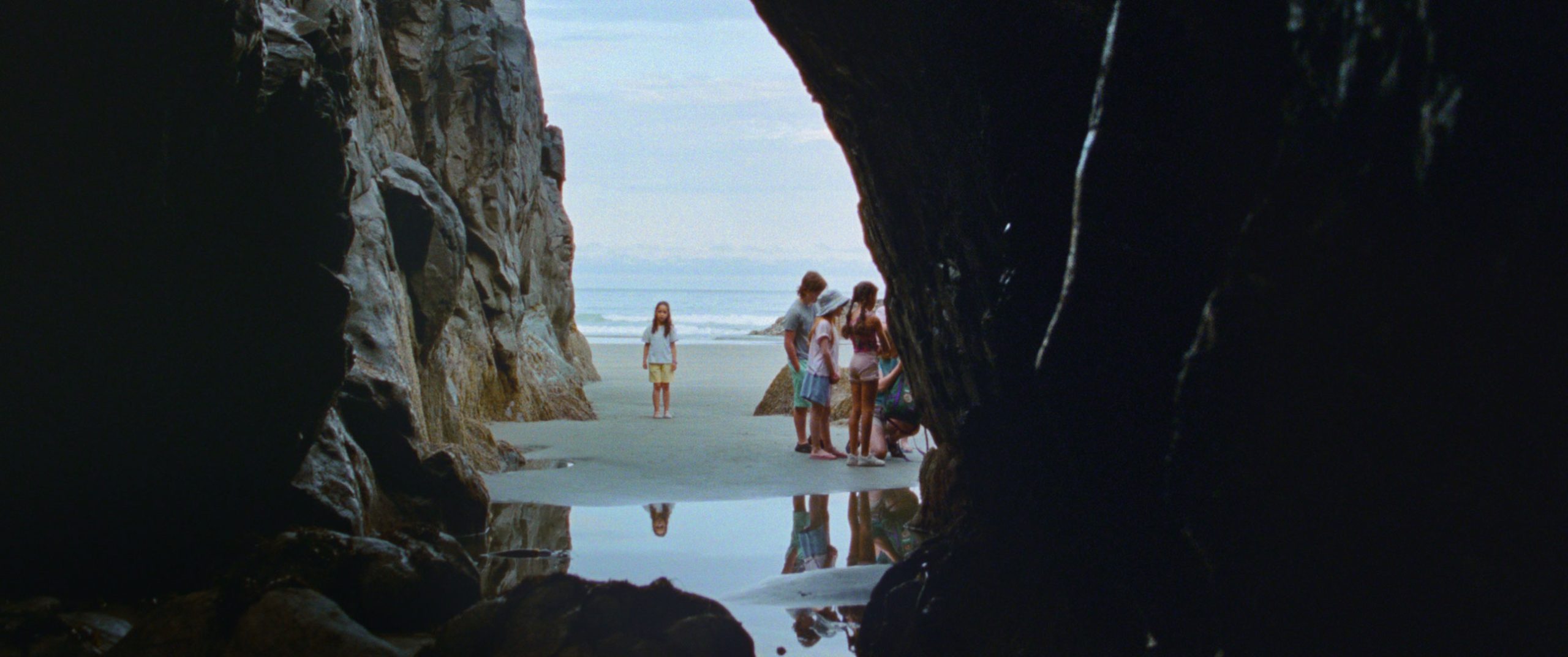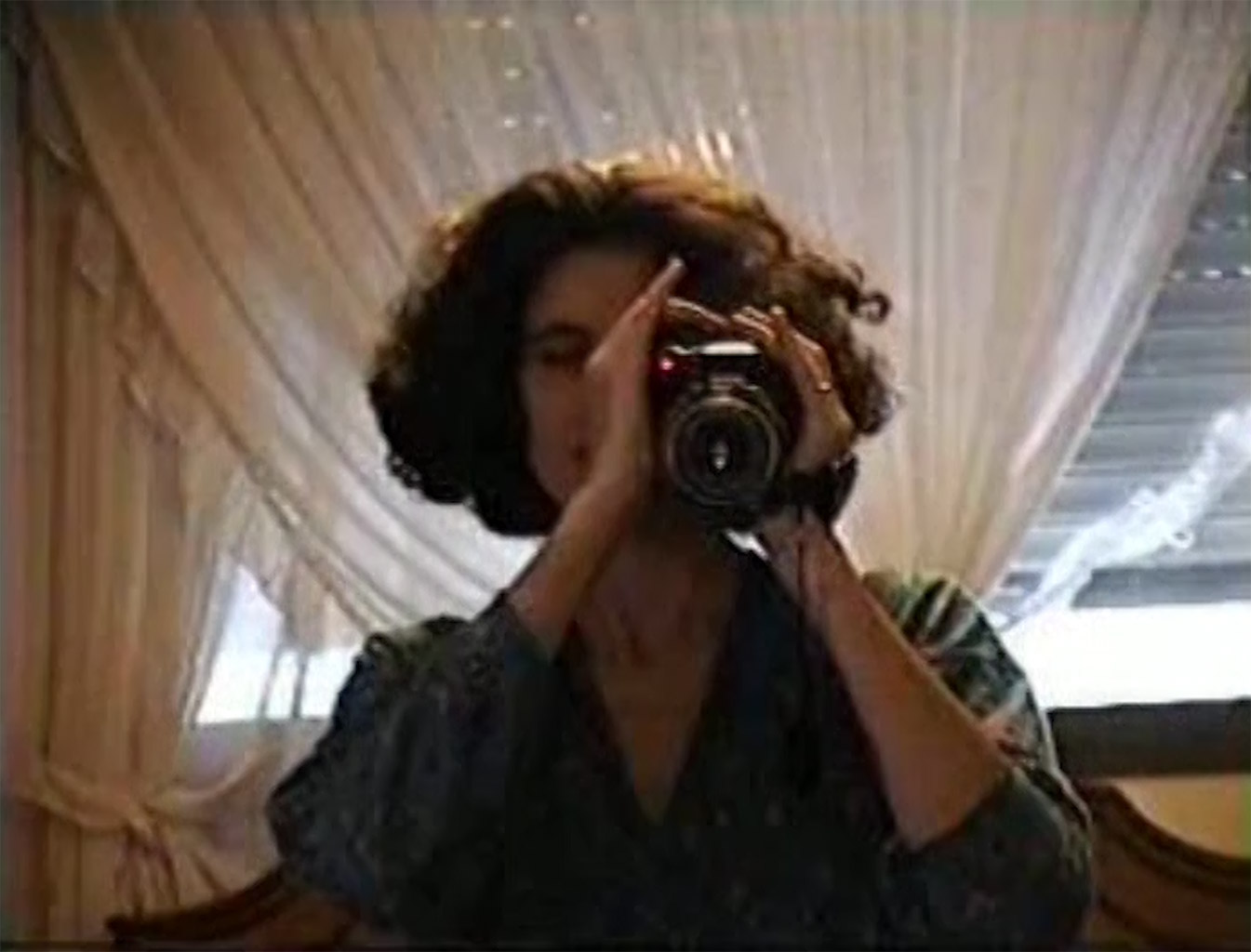Consider, as further examples, a few of Jackson’s most famous fashion decisions. He took a golf glove and bedazzled it with rhinestones. He paired a military jacket with skintight jeans. These iconic visual elements are symbols of his playful integration of varying stereotypes of gender identity, wherein stereotypically feminine flamboyance (bejeweled beauty, graceful elegance) collides with stereotypically male institutional accessories (military, athletics, places of competition and/or aggression).
In fact, in a Nietzschean context, we might get a little more playful with the lyrics to “Bad”, and suggest that when Jackson asks ,”Who’s bad?”, we can take it as a rhetorical question as opposed to a call-and-response mechanism. “Who’s bad?”, Jackson or Nietzsche alike might ask. Well, no one, really, unless they accept or internalize the external force that labels them as such. What’s bad? Well, nothing, universally or objectively, aside perhaps from that which renders us life-denying or weak.

THE CHILD
If we accept that Jackson was existentially able to carve out some room to roam, so to speak — the next question to address is: what use did he make of that creative space? The answer is expressed perfectly in the third and final stage described in Zarathustra’s metamorphoses. This stage is symbolized by the child, the playful creator. For Nietzsche, play is hardly a trivial matter; it is a radical philosophical act. When old frameworks are cast aside, new ones must be crafted with imaginative vivacity. Likewise, Zarathustra teaches, “Why must the preying lion still become a child? The child is innocence and forgetting, a new beginning… He who had been lost to the world now conquers his own world”.9
Here the conception of self-improvement is a move towards new innocence, towards life lived as an artistic act. The individual creator builds his world up anew according to his own whimsy. Yet Zarathustra’s characterization of the child is not quite the same as, for example, the Transcendentalists’ idolization of the pure, uncorrupted youth. Zarathustra’s child is, importantly, reborn after a series of challenges. This child “conquers his world” only after a stage of burden and a stage of subversion. More specifically, too, is the implicit idea here that the child emerges out of pain or trauma. The act of “forgetting” is admirable in Nietzsche, because forgetting past legislation means being free to legislate for oneself anew, without guilt. Yet the need to forget seems to suggest a trauma that must be overcome. Zarathustra’s child is a bit of an alien. The playful child conquers his world, but only after being “lost” to the world at large.
It is here where the symbolic text of Nietzsche’s Zarathustra collides in an extremely literal way with Jackson’s biographical details. So much of Jackson’s mythology in the popular eye is centered around the idea of him as Peter Pan, the little boy who refused to grow up — the child star who, having had his childhood taken from him, attempted to recreate it in adulthood. Yet using Zarathustra as a guide, we can go further, and approach the subject of Jackson’s inner child in a way that grants him much greater moral and philosophical agency. Within the Zarathustran paradigm, Jackson’s arrival at a childlike state can be seen as a noble example of overcoming trauma and redefining one’s understanding of the world accordingly. Rather than being written off as delusional behavior, Jackson’s general fixation on children and childhood can be seen as an enlightened conclusion — one reached by someone who has had the spiritual fortitude to transform his past slavery into a life-affirming vision for the future.
Indeed, in “The Three Metamorphoses”, Zarathustra describes the child as uttering “a sacred ‘yes'” to life, seen as a welcome progression from the previous “no” of the lion.9 Jackson’s “holy ‘yes'” — his visionary work — came in the form of his humanitarian efforts. Most notably, his Heal the World Foundation, established in 1992, provided millions of dollars to impoverished and ill children worldwide. His fame gave him a prominent platform upon which to express his sociopolitical concerns. Accordingly, the most straightforward articulation of his own philosophy, his inner life as a thinker, is available to us in this arena. Considering his celebrity, my philosophical “reading” of Jackson’s life is naturally bound up in rumor, speculation, and imaginative association. Yet in his passionate defense of suffering children everywhere, we are able to seize on more rich and specific evidence of his thought. His Grammy acceptance speech in 1993 bears a notably strong resemblance to Zarathustra’s own appraisal of the virtue of children. After discussing his own childhood abuse, Jackson went on to say, “The magic, the wonder, the mystery and the innocence of a child’s heart are the seeds of creativity that will heal the world. What we need to learn from children isn’t childish. Being with them connects us to the deeper wisdom of life, which is ever present and only asks to be lived: the noble way to solutions that lie waiting to be recognized within our own hearts”.10
We can take two major points from this. The first is that the source of creative energy is in a childlike sense of newness in one’s approach to the world. The second is that true wisdom means recognizing the strength within. What Jackson is suggesting here is that any substantial change occurs from a place of self-possession, from a realization of one’s own potential as a creator and meaning-maker. It’s quite a Nietzschean idea.
The same idea is echoed again in one of Jackson’s most beloved songs, “The Man In the Mirror.” The famous chorus goes: “I’m starting with the man in the mirror/ I’m asking him to change his ways/ No message could’ve been any clearer/ If you want to make the world a better place/ Take a look at yourself and then make a change”.11 Though we can’t properly attribute the words to Jackson himself — the song was written for Jackson by a singer named Siedah Garrett — the message bodes well with the rest of Jackson’s art and public work.
Sources
9 Kaufmann, Walter, ed. The Portable Nietzsche. New York: Viking Penguin, 1954, 139.
10 Jackson, Jackson. Grammy Legend Award acceptance speech. 35th Annual Grammy Awards. CBS. 24 Feb 1993.
11 Garrett, Siedah. “Man in the Mirror”. Perf. Michael Jackson. Bad. Epic, 1987.







Wonderful and thought provoking article. Thank you!
wow! Fascinating! I really appreciate the ideas presented by this article.
Great article! You saw and highlighted the core, most important things in Jackson. Fascinating parallels. Thank you!
Very insightful article shedding light on the motivations of two great artists.
Thank you. A really thought provoking article that connects the dots for me for MJ’s life, philosophy and art. I believe that his creativity was unparallelled in pop music and culture. He challlenged us and himself in ways that only now are being realized, studied and analyzed. Thanks again for adding to this discussion and apprecation of his life and work.
[…] http://www.redefinemag.com/2013/myth-of-michael-jackson-friedrich-nietzsche-the-child-in-the-mirror/ […]
[…] Gina Altamura’s The Child in The Mirror: A Nietzschean Reading of the Myth of Michael Jackson […]